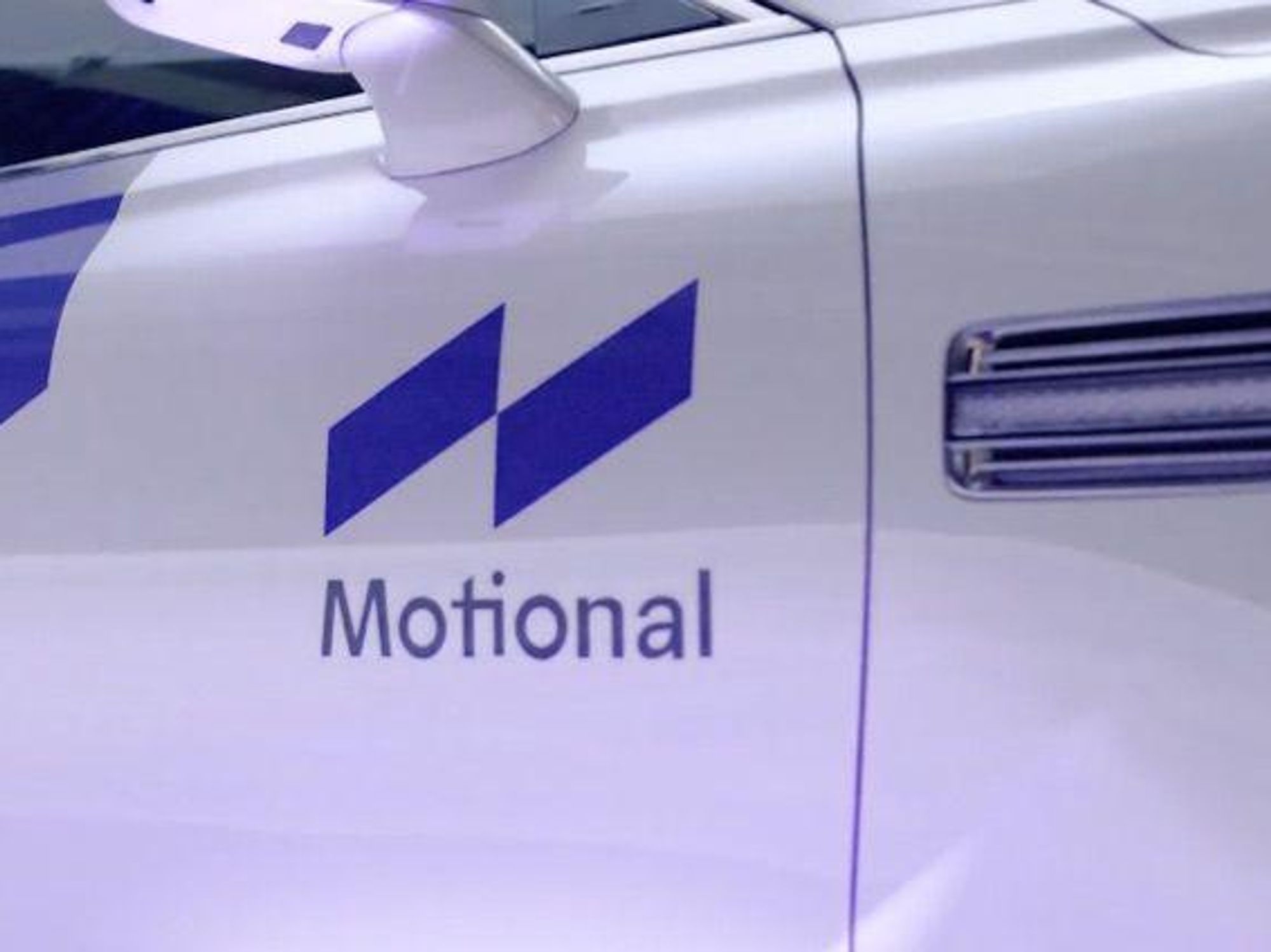Motional Links With Uber to Make Robotaxis a Reality
Samson Amore is a reporter for dot.LA. He holds a degree in journalism from Emerson College. Send tips or pitches to samsonamore@dot.la and find him on Twitter @Samsonamore.

Motional, a self-driving taxi startup backed by Hyundai, will partner with Uber to bring its robotic taxis to cities throughout the United States within the next decade as part of its push to get people more comfortable with the concept of taking a ride in a driverless electric vehicle.
Though based in Boston, Motional has maintained significant operations in Santa Monica since 2016. Last August, it expanded its testing facility and doubled its staff in L.A. In September 2021, Motional announced they would begin public road mapping of L.A. city streets in addition to testing the viability of its autonomous taxis in Boston, Las Vegas, Pittsburgh and Singapore.
But Motional’s deal with Uber marks a new chapter for both companies as they seek to make autonomous vehicles the norm. To start, Motional plans to import its driverless technology installed in Hyundai’s electric IONIQ 5 cars to the Uber network. The plan is for Uber customers in “cities across the U.S.” to be able to hail a driverless cab by the end of this year.
Motional CEO Karl Iagnemma stated Thursday the deal could be key to mass adoption of autonomous taxis. Especially since the deal gives Motional access to Uber’s valuable network of millions of riders across the U.S. and its proprietary mapping systems.
Earlier this year, Uber and Motional linked to experiment with Motional’s robotaxis by delivering meal kits through Uber Eats in Santa Monica. Worth noting that Motional is also working with Uber competitor Lyft to offer autonomous rides in Las Vegas.
Motional and Uber declined to disclose which cities might see driverless rides first, but it’s certainly ambitious for them to be targeting the end of the year since the robotaxi industry writ large is still struggling to work out some of its kinks. Most importantly, they have to figure out a way to convince people to take a drive in a car that’s piloted by a robot.
One MIT study from 2017 found that 48% of those surveyed said they wouldn’t buy an autonomous vehicle because of safety concerns. A more recent study from AAA published in 2021 found that only 14% of survey respondents said they’d be comfortable riding in a car that drives itself, while 54% said they’d be afraid to try one. The same study also noted that only 22% of people thought automakers should be focused on self-driving tech, while the majority of drivers felt companies should focus their attention on making current vehicle safety systems better.
Motional and Uber will also face a crush of competition. Last February the California Department of Motor Vehicles reported the number of companies testing driverless cars doubled.
Currently, over 50 companies have permits to test driverless tech statewide. The top startups ranked by test drive miles were Google’s Waymo and Cruise, a startup based in San Francisco, backed by General Motors. Other companies testing included established names like Tesla, BMW, Mercedes-Benz, Nissan and Honda, as well as Tesla, Amazon subsidiary Zoox and Silicon Valley startup Pony.ai.
Another potential hurdle? Motional and Uber don’t have permits for driverless testing in L.A. yet. As such, for the pilot program with Uber Eats, Motional didn’t technically have its cars drive themselves since a human operator had to be present.
It can’t be overstated, however, just how much most people still don’t trust driverless cars.
In June, when Cruise began charging fares for driverless rides in San Francisco they quickly found themselves embattled in an investigation after one of its cars hit a Toyota Prius at an intersection, injuring both passengers. Also, when a New York Times reporter took a ride in one of Cruise’s driverless vehicles, the car had issues stopping at lights on time and on one occasion stopped for a nonexistent accident. Worse still, this past summer, an outage to Cruise’s network caused a handful of its cars to remain at a standstill, which led to a traffic jam that lasted a couple hours at a busy intersection in San Francisco.
All of this is to say that despite Motional and Uber’s targets, we appear to be far away from mass adoption of robotaxis, even if there’s a huge cohort of tech giants looking to push them. One TikToker posted a video of her using an autonomous car last month, and the comments in the replies said it all – “no, absolutely not.”Samson Amore is a reporter for dot.LA. He holds a degree in journalism from Emerson College. Send tips or pitches to samsonamore@dot.la and find him on Twitter @Samsonamore.





 Image Source: Blackbird
Image Source: Blackbird